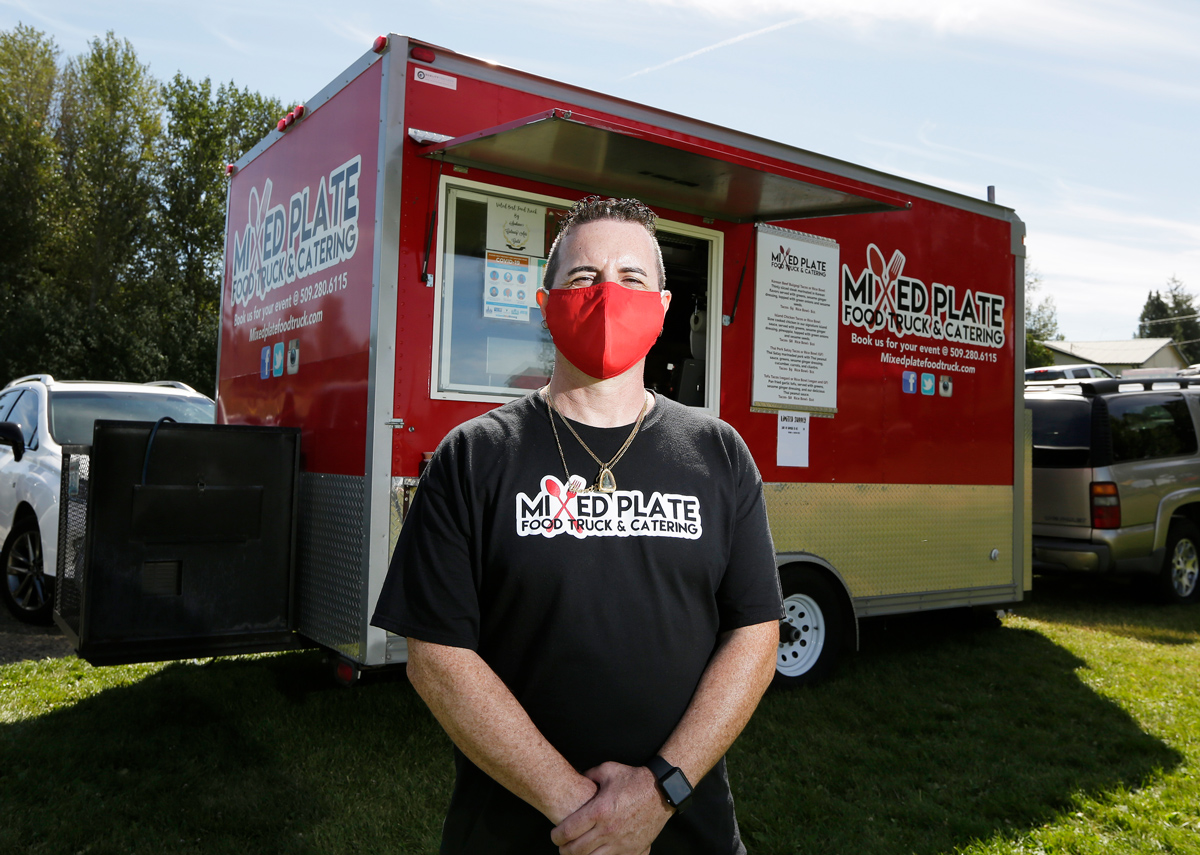
From the first green shoots of spring until the last leaf falls in autumn, Spokane area food trucks are typically firing on all available cylinders. Even if they’re not attending an event or parked at a familiar roadside spot, their staff will be busy with operational chores like prepping food or scheduling.
This year has been — to put it mildly — very different. Large-scale gatherings like Pig Out have been canceled. Weddings and receptions have been scaled back, postponed or moved across state borders. With so many companies still working remotely, the downtown crowds have thinned. There have been shortages of staple ingredients like rice and meat.
“In general, our season has been shot,” says Tony Epefanio, owner of Mixed Plate food truck and president of the Greater Spokane Food Truck Association (GSFTA). “Not even half of our members are operating.” He estimates that the actual number of trucks who’ve persevered through COVID-19 is closer to one-quarter of the community’s usual number.
Those who have continued to operate are doing so under comparable guidelines to brick-and-mortar restaurants. Their staffs are wearing masks. Individually packaged seasonings, sauces and silverware have replaced “community condiments.” Contactless payment options are increasingly common. And sanitization routines have been beefed up.
Some food truck vendors have even chosen to drive in a different direction. Sabrina Sorger, who runs the Jamaican Jerk Pan food truck and Greenbluff Fresh Catering, in addition to serving as vice president of the GSFTA, has temporarily moved entirely to catering. That, too, is subject to a new set of COVID-era regulations.
“We have to follow the rules of dine-in restaurants,” she says. “Instead of having to use sneeze guards with self-service buffets, we’ve been serving guests cafeteria-style, so they don’t touch anything until we hand them their plate at the end of the buffet line.”
The new methods, though not always ideal, have highlighted some shortcomings of the old ones. In Sorger’s experience, the cafeteria-style serving approach has cut down substantially on food waste.
 “Normally, with a self-service buffet of, let’s say, a hundred people, I have to bring 75 servings of each dish because people will take bowls or a large portion. I don’t have to do that now. I can bring half of everything.”
“Normally, with a self-service buffet of, let’s say, a hundred people, I have to bring 75 servings of each dish because people will take bowls or a large portion. I don’t have to do that now. I can bring half of everything.”
Furthermore, the savings on food has more than offset the wages for a new additional employee. “So there’s two benefits there,” Sorger says.
In the meantime, both she and Epefanio have been working equally hard to channel all food-truck-related info through the GSFTA and its social media accounts or website. The aim is to create a one-stop resource for anyone who’s hankering after their fresh-made food and international dishes but isn’t sure how to track them down.
“On Facebook and Instagram, we share the posts of any of our association members who are out. If they’re at an event or serving somewhere or at a location for pickup, you’ll see it,” says Epefanio. “And if anybody’s looking for [multiple] food trucks, you can go to our website. You can book a truck there or go to our event page and see what’s going on.”
You can help amplify the GSFTA’s reach by following the association’s social media accounts and sharing the posts with your own friends and family. And then, of course, sharing the food trucks’ delicious meals with your household as well.
The website greaterspokanefoodtrucks.com is a great place to learn more, even as most food trucks share their locations on Facebook and Instagram. Mixed Plate, for example, has been at the Kendall Yards Night Market on Wednesdays, and at the Spokane Valley Farmers Market on Fridays, along with other stops. Jamaican Jerk Pan is available for private catering.

